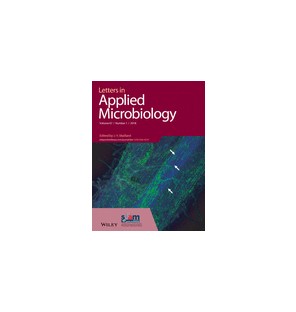Ver ítem
- xmlui.general.dspace_homeCentros Regionales y EEAsCentro Regional Mendoza - San JuanEEA MendozaArtículos científicosxmlui.ArtifactBrowser.ItemViewer.trail
- Inicio
- Centros Regionales y EEAs
- Centro Regional Mendoza - San Juan
- EEA Mendoza
- Artículos científicos
- Ver ítem
Evaluation of behaviour of Lachancea thermotolerans biocontrol agents on grape fermentations
Resumen
Previous researches have showed that Lachancea thermotolerans strains RCKT4
and RCKT5 inhibited the growth of Aspergillus. However, currently, there are
no data on their nutritional preferences, as a possible substrate competitor
against Saccharomyces cerevisiae, and their effects on fermentation. In this
work, we observed that the biocontrol yeasts and S. cerevisiae BSc203, based on
the utilization of 16 carbonate sources, revealed significant
[ver mas...]
Previous researches have showed that Lachancea thermotolerans strains RCKT4
and RCKT5 inhibited the growth of Aspergillus. However, currently, there are
no data on their nutritional preferences, as a possible substrate competitor
against Saccharomyces cerevisiae, and their effects on fermentation. In this
work, we observed that the biocontrol yeasts and S. cerevisiae BSc203, based on
the utilization of 16 carbonate sources, revealed significant differences in the
nutritional profile (biocontrol yeasts NS:0 25, BSc203 NS:0 56). Lachancea
thermotolerans strains did not occupy the same niche as that of BSc203
(NOI:0 44). The biocontrol agents and BSc203 presented similar competitive
attitude in terms of the sugar, ethanol and sulphite tolerances. During
fermentation, the biocontrol yeasts were found to tolerate up to 12% v/v
ethanol, 250 mg ml
1 of total SO2 and 30° Brix sugar. In mixed cultures, L.
thermotolerans strains did not negatively affect the growth of BSc203 and the
wine quality, except when RCKT4 was initially inoculated at a high proportion
in the mixed culture 1MSK4 (1%BSc203/99%RCKT4), resulting in a lower
production of CO2 and ethanol, in comparison with pure BSc203. RCKT5, at a
high proportion, in 1MSK5 (1%BSc203/99%RCKT5) presented promising
oenological properties. This fermentation showed lower acetic acid contents
and higher total acidity than pure BSc203.
[Cerrar]

Autor
Nally, Maria Cristina;
Ponsone, María Lorena;
Pesce, Virginia Mercedes;
Toro, Maria Eugenia;
Chulze, Sofia Noemí;
Director de Tesis
Vazquez, Fabio;
Fuente
Letters in applied microbiology 67 (1) : 89-96. (July 2018)
Fecha
2018-07
Editorial
Society for Applied Microbiology
ISSN
1472-765X
Formato
pdf
Tipo de documento
artículo
Palabras Claves
Derechos de acceso
Restringido
 Excepto donde se diga explicitamente, este item se publica bajo la siguiente descripción: Creative Commons Attribution-NonCommercial-ShareAlike 2.5 Unported (CC BY-NC-SA 2.5)
Excepto donde se diga explicitamente, este item se publica bajo la siguiente descripción: Creative Commons Attribution-NonCommercial-ShareAlike 2.5 Unported (CC BY-NC-SA 2.5)

